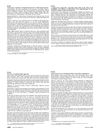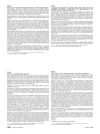UCLA scientists found a molecule — PP405 — that wakes up sleeping hair follicles and tells them, “Do your job.” Research/Science 5/12/2025
PP405 is a promising molecule that may reactivate dormant hair follicles, potentially offering a new treatment for hair loss. It is in phase 2 trials, with possible availability between 2027 and 2030.
View this post in the Community →
Similar Community Posts Join
5 / 412 resultscommunity Molecule PP405: A Research Team Backed By Google Ventures Has Discovered One Of The Most Promising Solutions For Hair Loss To Date
PP405 is a promising new treatment for hair loss that activates dormant stem cells in hair follicles, potentially bypassing the effects of DHT. It is currently in phase 2 trials and could be available between 2027 and 2030, but it is not considered a definitive cure.
community If PP405 does revive "dead" hair follicles would DHT blockers theoretically be enough to maintain that new hair
PP405 may revive dormant hair follicles, and DHT blockers like finasteride or dutasteride could maintain new hair. Combining PP405 with minoxidil might be optimal, but long-term effects and continuous use are uncertain.
community Reminder: NURTURE those dormant hair follicles for as long as you can until PP405 comes out in 2028-2030
PP405 is anticipated as a future treatment for dormant hair follicles, but its effectiveness and safety are uncertain. Current treatments include oral minoxidil and microneedling, with some avoiding finasteride due to side effects.
community If PP405 works it will be fkn impossible to buy it.
PP405 is a potential hair loss treatment that may activate dormant hair follicles, but there are concerns about its effectiveness, cost, and side effects. Users discuss treatments like minoxidil, finasteride, and RU58841, expressing skepticism about PP405's long-term success and accessibility.
community Pelage, PP405, is creating a database for potential new trial volunteers
PP405 is a new hair loss treatment targeting dormant hair follicles, with ongoing trials. Some users consider stopping finasteride and minoxidil to join trials, while others doubt its effectiveness.
Related Research
6 / 20 results
research Recent Advances in Drug Development for Hair Loss
New treatments for hair loss show promise with advanced therapies and better targeting.

research PP405 in Alopecia: An Emerging Molecule Worth Investigating
PP405 shows promise as a new, effective treatment for hair loss with minimal side effects.
research Hair Melanin And Hair Color

research Review of the 2024 American Academy of Dermatology Annual Meeting
New treatments for skin conditions show promise, especially Coacillium® for hair growth in young people with alopecia areata.

research Trichoscopy: Usefulness in Diagnosing Hair Loss in Adult Female Patients
Trichoscopy is a helpful and quick method to identify different types of hair loss in women.

research Hair Loss: An Epidemiologic Approach
Hair loss affects 20% of people, more in men and those over 35, and is often associated with a sensitive scalp.